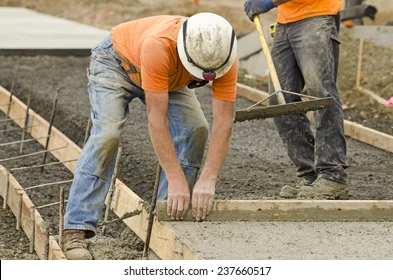Proper curing and drying for newly poured concrete is of utmost importance in Richardson, TX. This process plays a vital role in ensuring the strength, durability, and longevity of the concrete structures. Without adequate curing and drying, the concrete can be prone to cracking, shrinkage, and damage from chemical attacks, which can compromise its structural integrity and lifespan.
Controlling moisture levels is crucial for achieving optimal strength in newly poured concrete. By allowing the concrete to cure and dry properly, excess moisture is gradually removed, preventing the formation of weak spots and ensuring a solid, sturdy foundation. Additionally, proper curing and drying help in preventing cracking and shrinkage, as the gradual removal of moisture allows the concrete to shrink uniformly, reducing the risk of structural damage. Moreover, the curing and drying process enhances the concrete’s resistance to chemical attacks, protecting it from deterioration caused by exposure to harsh substances.
At Reef Concrete Contractor Richardson, we take pride in our work and follow a set of essential steps to ensure the longevity and safety of concrete structures in Richardson, TX. As the Best Concrete Contractor in the area, we go above and beyond to provide exceptional service.

Controlling Moisture Levels for Optimal Strength
You need to make sure you control moisture levels properly if you want your newly poured concrete to reach its maximum strength and durability. Proper curing and drying are essential steps in the concrete construction process that should not be overlooked. When concrete is initially poured, it contains a high amount of water, which is necessary for the chemical reaction that makes it harden. However, if this water is not properly controlled and managed, it can lead to a weaker and less durable final product.
During the curing process, the moisture in the concrete needs to be retained to allow for the chemical reaction to occur fully. This can be achieved by covering the concrete with a curing compound or by using plastic sheets to prevent moisture evaporation. By keeping the concrete moist, the hydration process can continue, resulting in a stronger and more durable structure. On the other hand, if the moisture is allowed to evaporate too quickly, the concrete can become brittle and prone to cracking. Therefore, it is important to monitor the moisture levels and take appropriate measures to ensure the concrete remains adequately hydrated during the curing process.
Preventing Cracking and Shrinkage
To ensure a strong and durable foundation, it’s crucial to prevent cracking and shrinkage when curing and drying freshly poured concrete in Richardson, TX. Cracking occurs when the concrete dries too quickly or unevenly, causing tension and stress within the material. This can weaken the overall structure and lead to long-term damage. To prevent cracking, it’s important to implement proper curing techniques.
During the curing process, the concrete needs to be kept moist to allow for proper hydration and strength development. One method to prevent cracking is to apply a curing compound or sealant to the surface of the concrete. This creates a barrier that slows down the evaporation of moisture from the surface, allowing the concrete to cure more evenly. Additionally, covering the concrete with a plastic sheet or using a curing blanket can help retain moisture and regulate the temperature during the drying process. By controlling the moisture levels and temperature, the risk of cracking and shrinkage is significantly reduced, resulting in a stronger and more durable concrete foundation.
Enhancing Resistance to Chemical Attacks
Enhancing resistance to chemical attacks is crucial for ensuring the longevity and durability of your concrete foundation. Chemical attacks can occur when concrete comes into contact with substances such as acids, oils, and salts, which can gradually erode the material and weaken its structure. To prevent this, it is important to properly cure and dry the newly poured concrete in Richardson, TX.
One way to enhance resistance to chemical attacks is by applying a protective coating or sealant on the surface of the concrete. This coating acts as a barrier, preventing chemicals from penetrating into the concrete and causing damage. There are different types of coatings available, such as epoxy or polyurethane, which offer varying levels of protection. It is important to choose the right coating based on the specific chemical exposure your concrete will face.
Another method to enhance resistance to chemical attacks is by using chemical-resistant aggregates in the concrete mixture. Aggregates are the materials added to the concrete mix, such as sand, gravel, or crushed stone. By using aggregates that are resistant to chemical attacks, you can minimize the potential damage caused by exposure to corrosive substances. Additionally, using a mix design that includes a higher cement content can also improve the resistance of the concrete to chemical attacks.
Enhancing resistance to chemical attacks is essential for the longevity and durability of your concrete foundation. By applying protective coatings and using chemical-resistant aggregates, you can minimize the potential damage caused by exposure to corrosive substances. Proper curing and drying of the concrete also play a crucial role in ensuring its resistance to chemical attacks. It is important to consult with professionals in Richardson, TX, who have expertise in concrete construction to ensure that the proper techniques and materials are used for your specific project.
Improving Durability for Longevity
By incorporating additives and reinforcing materials, your concrete foundation can be made more durable and long-lasting. One way to improve the durability of newly poured concrete is to use chemical admixtures. These additives can enhance the strength and resistance of the concrete, making it more resistant to cracking and other forms of damage. For example, the use of air-entraining admixtures can create microscopic air bubbles in the concrete, which allow for expansion and contraction without causing cracks. This is particularly important in regions with FLuctuating temperatures, as the concrete can expand and contract without damaging the structure.
In addition to chemical admixtures, reinforcing materials such as steel bars or fibers can also be incorporated into the concrete to improve its durability. These materials provide additional strength and support to the structure, helping it withstand external forces and reducing the risk of cracking or collapsing. For example, steel bars can be placed in strategic locations within the concrete to reinforce weak points or areas that are prone to stress. This reinforcement can significantly increase the lifespan of the concrete foundation, ensuring its longevity and stability over time. By investing in these additives and reinforcing materials, you can greatly improve the durability of your newly poured concrete foundation in Richardson, TX.
Ensuring Reliable and Long-Lasting Results
Ensuring reliable and long-lasting results starts with understanding the key factors that contribute to the strength and durability of your concrete foundation. One of the most critical factors is proper curing and drying. When concrete is poured, it undergoes a chemical reaction called hydration, where water and cement react to form a solid mass. This process takes time and requires the right conditions, including adequate moisture and temperature levels. By properly curing and drying the concrete, you allow the hydration process to occur fully, resulting in a stronger and more durable foundation.
During the curing process, it is essential to keep the concrete moist to prevent it from drying out too quickly. This can be achieved by covering the concrete with a plastic sheet or using curing compounds. Moisture helps the cement particles to bond together and form a solid structure. Additionally, maintaining a consistent temperature is crucial for proper curing. Extreme temperatures can cause the concrete to expand and contract, leading to cracks and weakened integrity. By controlling the curing conditions, you can ensure that the concrete cures uniformly and achieves its maximum strength.
Properly curing and drying your newly poured concrete in Richardson, TX, is essential for achieving reliable and long-lasting results. By understanding the key factors that contribute to the strength and durability of your foundation and following the recommended curing practices, you can ensure that your concrete will withstand the test of time. Investing time and effort into the curing process will pay off in the form of a strong and durable foundation that will serve you well for years to come.
Frequently Asked Questions
What are the common mistakes to avoid during the curing and drying process of newly poured concrete?
Common mistakes to avoid during the curing and drying process of newly poured concrete include: not providing enough water for hydration, not covering the concrete to prevent moisture loss, and not allowing enough time for proper curing.
Can the curing and drying process be accelerated to save time?
No, the curing and drying process of newly poured concrete cannot be accelerated to save time. It is crucial to allow sufficient time for the concrete to cure and dry properly in order to ensure its strength and durability.
How long does the curing and drying process typically take for newly poured concrete?
The curing and drying process for newly poured concrete typically takes around 28 days. It is important to allow sufficient time for the concrete to fully cure in order to ensure its strength and durability.
Are there any specific environmental factors that can affect the curing and drying process?
Yes, there are specific environmental factors that can affect the curing and drying process of newly poured concrete. Factors such as temperature, humidity, and wind speed can all impact the time it takes for the concrete to cure and dry properly.
Are there any additional treatments or coatings that can be applied to enhance the curing and drying process of newly poured concrete?
There are additional treatments and coatings available to enhance the curing and drying process of newly poured concrete. These can include sealers, curing compounds, and moisture-retaining coatings.
Conclusion
In conclusion, proper curing and drying are essential for newly poured concrete in Richardson, TX. By controlling moisture levels, contractors can ensure optimal strength and prevent cracking and shrinkage. This is especially important in a climate like Richardson, where temperature and humidity fluctuations can have a significant impact on the concrete’s performance. Additionally, proper curing and drying techniques enhance the concrete’s resistance to chemical attacks, improving its durability and longevity.
Investing in reliable and long-lasting results is crucial for any construction project. By prioritizing proper curing and drying, contractors can ensure that the concrete will withstand the test of time and perform well even in challenging conditions. This is particularly important in Richardson, where the climate can be harsh and unpredictable. Therefore, it is crucial for contractors in Richardson, TX, to follow the necessary steps to achieve proper curing and drying for newly poured concrete, ultimately leading to stronger, more durable structures.
